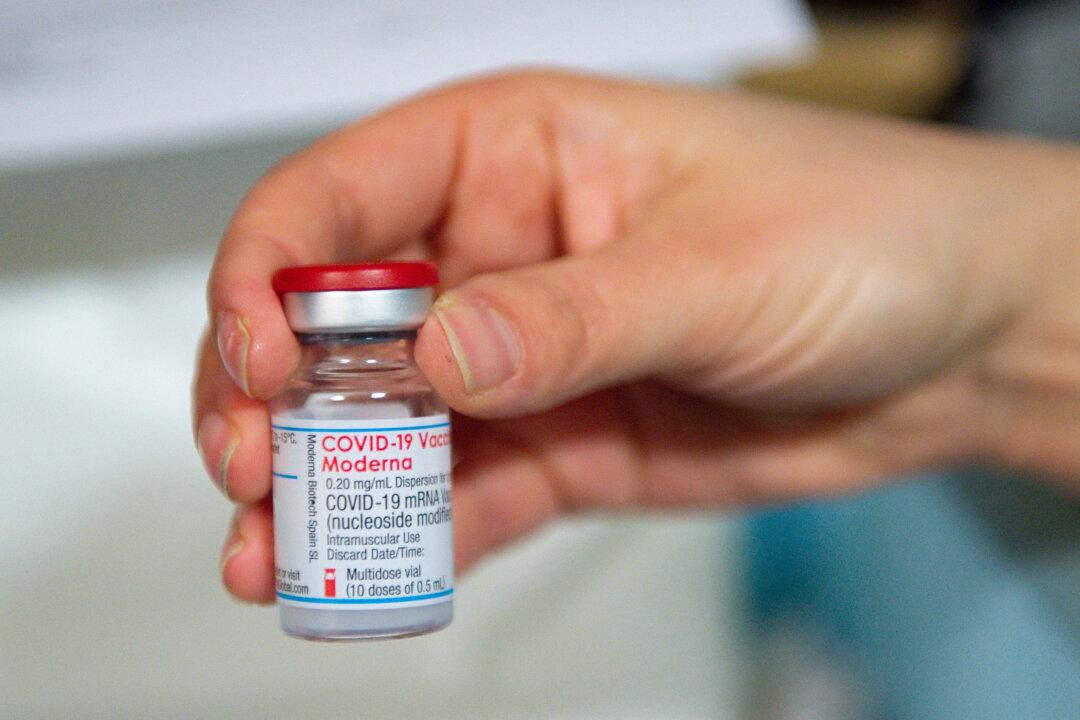Moderna’s COVID-19 vaccine is up to four times more likely to cause heart inflammation—myocarditis or myopericarditis—than Pfizer-BioNTech’s COVID-19 vaccine, a study published Dec. 16 in the British Medical Journal suggests.
“Vaccination with [Moderna’s vaccine] was associated with a significantly increased risk of myocarditis or myopericarditis in the Danish population,” and the rate was “threefold to fourfold higher” with the Moderna vaccine compared to the Pfizer-BioNTech vaccine, authors said in the study, which spanned almost 85 percent of Danes, or 4.9 million people aged 12 and older.




